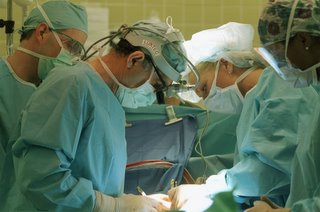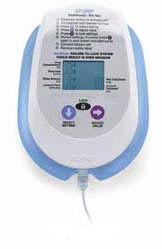In Office Plastic Surgery Not Always Safe
Accredited hospitals are held to strict safety guidelines and are accountable to national certifying agencies, physician’s offices are not held to the same standards.
 While a more beautiful appearance at an affordable price is the ultimate goal of many Americans exploring plastic surgery options, the issue of patient safety is of paramount concern and should never be overlooked. As the number of less invasive cosmetic surgeries increase exponentially in this country each year, ensuring that the procedures performed outside of a hospital setting take place in a safe, clean ambulatory facility is becoming more important than ever before.
While a more beautiful appearance at an affordable price is the ultimate goal of many Americans exploring plastic surgery options, the issue of patient safety is of paramount concern and should never be overlooked. As the number of less invasive cosmetic surgeries increase exponentially in this country each year, ensuring that the procedures performed outside of a hospital setting take place in a safe, clean ambulatory facility is becoming more important than ever before.
Distinguished New York City plastic surgeon Dr. William Rosenblatt is on the forefront of the movement to protect patients undergoing outpatient surgeries performed in physician’s offices and other non-hospital settings, and was recently appointed by the New York State Department of Health to a committee exploring such issues.
A senior member of the Office Based Committee, Dr. Rosenblatt is working to educate the public about ways that they can ensure that their surgeries are performed as safely as possible and that their physician is held accountable to specific safety protocols.
While patients tend to put a lot of stock in the affordability of procedures, he notes, the issue of safety is often overlooked. “Important questions should be asked when considering an outpatient facility or doctor’s office,” he says. “How is the quality of the monitoring equipment and what kind of safety backups are in place? Is the medical team prepared for any emergency or complication that might happen? Does the physician enjoy hospital privileges, indicating a history of medical competence?”
Dr. Rosenblatt notes that while accredited hospitals are held to strict safety guidelines and are accountable to national certifying agencies, physician’s offices are not held to the same standards. “How do you know that your surgeon has the necessary safeguards in place to protect your health in case of complications?”
The answer, explains Dr. Rosenblatt, is to look for a board certified plastic surgeon who belongs to either the American Society of Plastic Surgeons (ASPS) or the American Society for Aesthetic Plastic Surgery (ASAPS), groups whose members are monitored by organizations like the American Association for Accreditation of Ambulatory Surgery Facilities, Inc. (AAAASF). Without this accountability, he notes, patients are taking serious risks with their health and well-being.
 Dr. William Rosenblatt is an active member of the American Society of Plastic and Reconstructive Surgeons. He has served as President of the New York County Medical Society and is a Delegate to the American Medical Association representing the physicians of the New York State. As the first chairman of the Lenox Hill Physician Hospital Organization, Dr. Rosenblatt has worked to help shape the future of the medical profession. For more information see New York Plastic Surgeon
Dr. William Rosenblatt is an active member of the American Society of Plastic and Reconstructive Surgeons. He has served as President of the New York County Medical Society and is a Delegate to the American Medical Association representing the physicians of the New York State. As the first chairman of the Lenox Hill Physician Hospital Organization, Dr. Rosenblatt has worked to help shape the future of the medical profession. For more information see New York Plastic Surgeon




